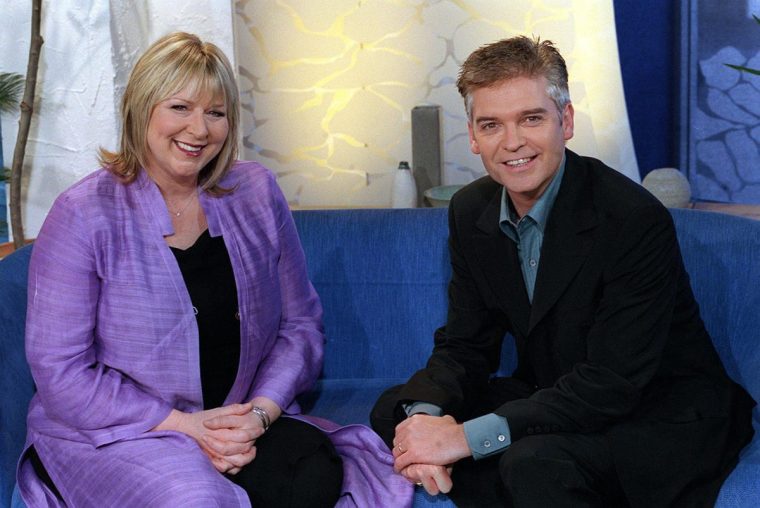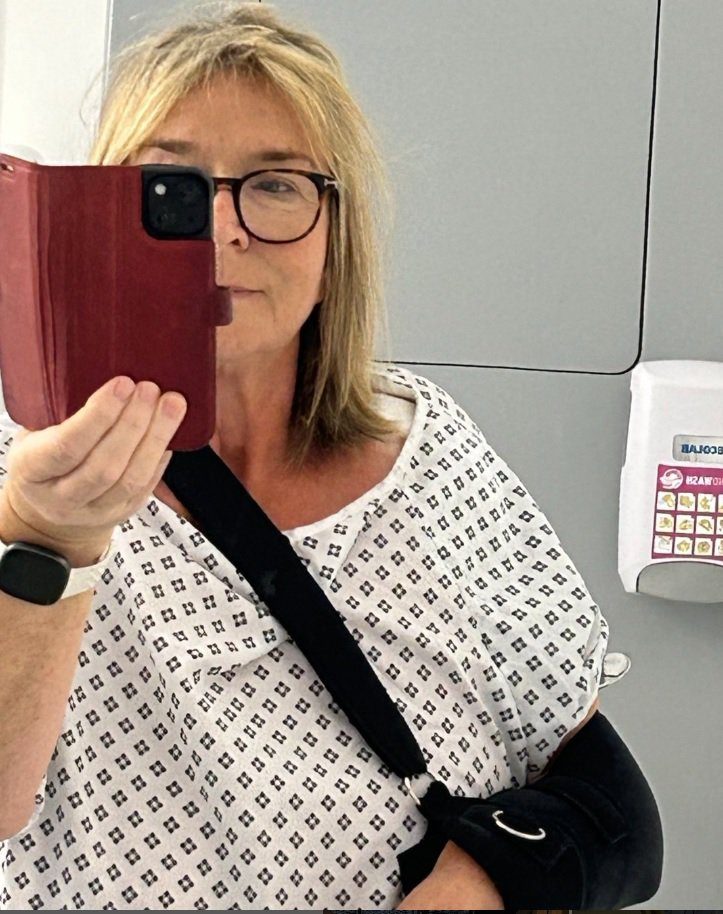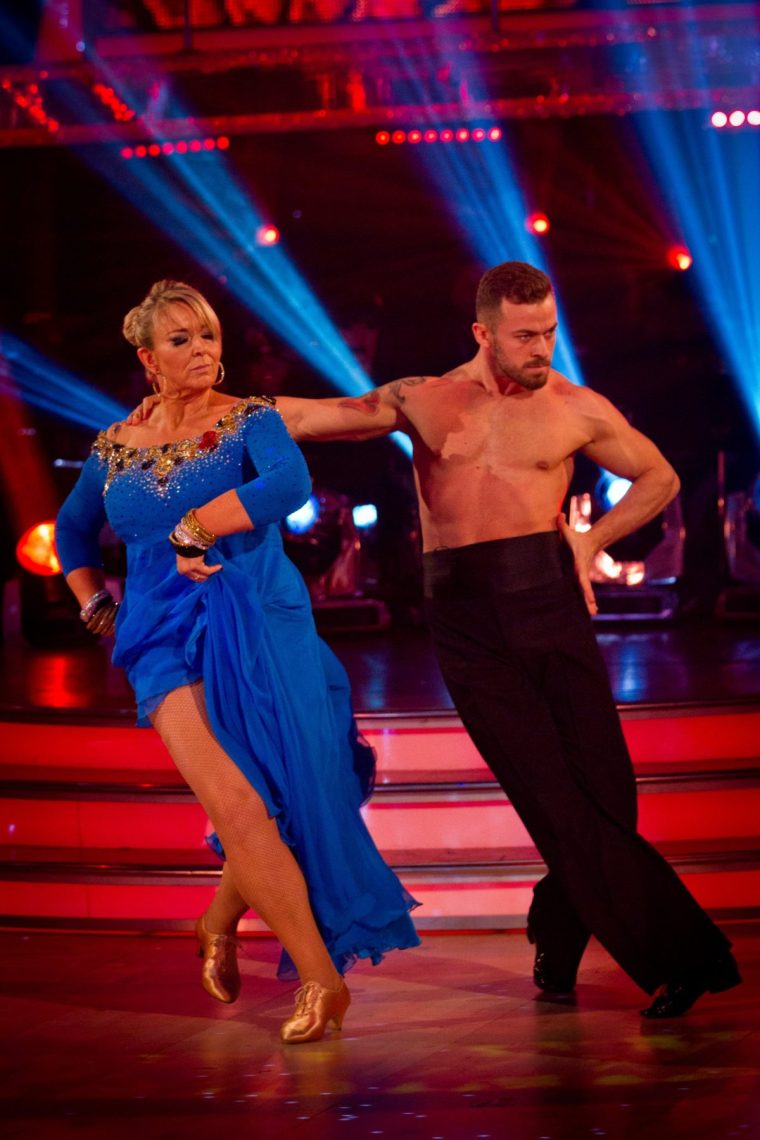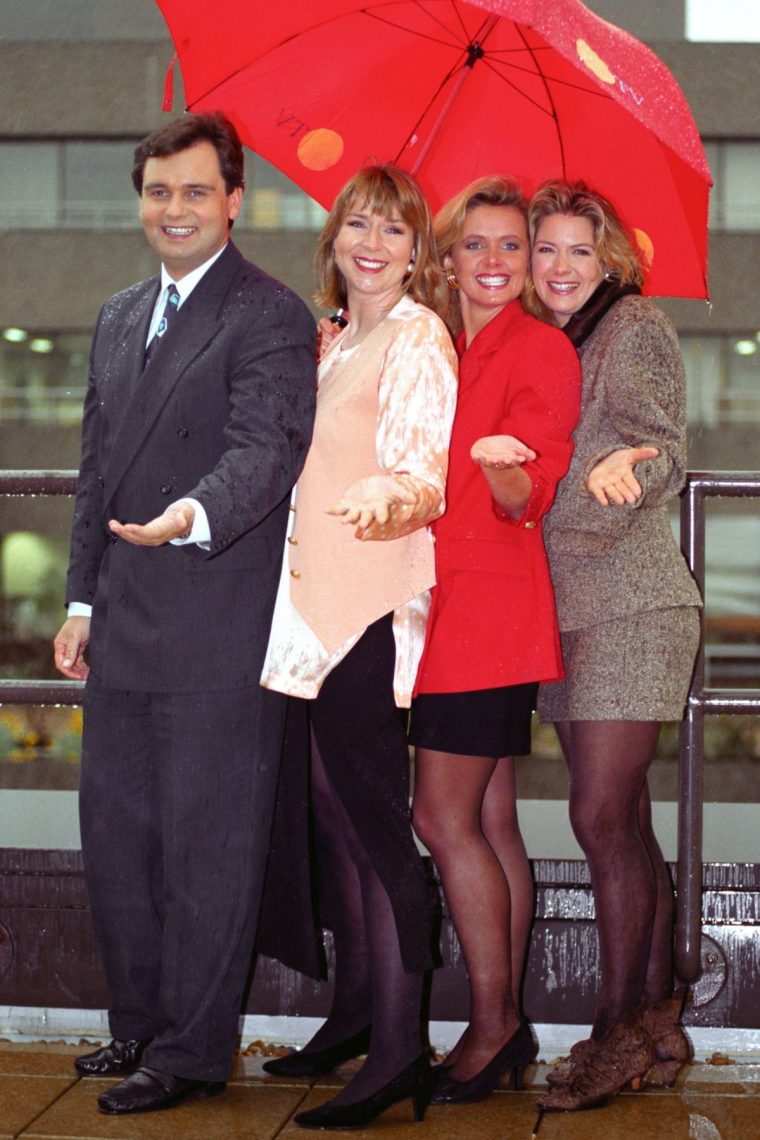Fern Britton’s public persona has always been misleading. For some reason, for four decades of her presenting career, she has been variously described as cosy, soft, safe, the “lovely lady”, the “mum next door”.
I’ve never understood this, because Britton isn’t cosy or safe at all. She might have made her name on daytime TV, but her presenting style has always been firm, not fluffy. As an interviewer she is far from gentle – when Tony Blair famously revealed to her in 2009 that he’d have invaded Iraq without evidence of weapons of mass destruction, it was a scoop earned through skill, not luck.
And off television, she has been open about the complicated (but relatable) parts of her life that others prefer to keep hidden. Divorce, sex, depression, fertility treatment, the nightmare of balancing motherhood with a demanding media job, her relationships, her experience of having a stalker, and of being raped at the age of 21 – she has been willing to share it with a brisk honesty. This is what life is really like, she seems to say. It’s tricky and imperfect and you just have to crack on.
I suspect that is why women, especially, have connected with her. It is precisely because she is not soft that you feel you can trust her. She is direct and authoritative without losing her warmth, which is how I find her in a Mayfair restaurant to talk about her new novel.

A Cornish Legacy is a story about grief, marital abuse, friendship and divorce, set in north Cornwall, where Britton herself moved in 2020 after her divorce from Phil Vickery. It is intelligent, easy to read and human. A lot like Britton, it is far from cosy, and that is probably what makes her books bestsellers. But it has taken 11 novels in 14 years for her to “tentatively” call herself an author. “At the very beginning I assumed, ‘I’m lucky, because I have got the marketable name.’”
But that name meant she felt a pressure to prove herself, especially given the criticism of celebrity authors dominating publishing. Even now, writing fiction, exposing her imagination, hoping that hers are universal experiences, requires more vulnerability than she’s usually comfortable with.
“Presenting is all about focusing on the person you’re talking to,” she says. “What I was taught in the very early days is it’s not to do with you, it’s not to do with your ego. You’re interested in the person you’re talking to, and I find that very easy. I’m comfortable with asking people questions.”
More than comfortable – she has built her career on it. Whether on This Morning, her interview series Fern Britton Meets… (on which guests ranged from Desmond Tutu to Cliff Richard), or long before that on breakfast TV across both the BBC and ITV, the 67-year-old has an ability to hold others to account, connect with them, and command conversations that are often far punchier and more disarming than the “lighter” shows in which they are broadcast. (Obviously she was great on Ready Steady Cook, too).

“I don’t mind being underestimated”, she says, smiling. “In fact, it’s quite lovely at times, because people don’t expect what’s coming”. When that Tony Blair interview ended up quoted at the Chilcot Inquiry, “he said something like, ‘even someone with my experience could get “tripped up”’. I was sort of described as a daytime nothing. And I thought, ‘I’m quite pleased with that, because you’re underestimating me, and that’s good’.”
But hasn’t that angered her, I wonder? Has she not felt as if she has missed out on recognition or opportunities she deserved, or been tempted to assert her dominance and skill the way so many louder men do?
“It might be the era I grew up in,” she says. “At the time, I didn’t realise, but there was an awful lot of putting women down, there was an awful lot of misogyny in newsrooms, and you just sort of go, ‘okay’. We really were more resilient to it.
“I appreciate that young women don’t accept that anymore,” she says. “But that resilience has been very good and kept me going.” She found that “trying never to stand up, shout at a boss or cry in the newsroom” was a constructive way to deal with problems. She is not easily hurt when “attacked” and is able to hold it together “until I’m over the red-hot rage that could do more damage”, she says. “Men don’t like women crying in the office, and I’ve tried very hard to not look as if I’m being a pain in the arse. The one or two times I have stood my ground, it hasn’t always served me well.”
I ask about them. “I worked with a producer on a show years ago and she was hopeless and giving me instructions that were utter nonsense. And so I went, ‘This is rubbish. This isn’t any kind of research. This is all wrong.’ Within a week I was off that show.” It is one of a few times.

Her job on GMTV’s Top of the Morning was given to someone else when she was on maternity leave with her twin sons Harry and Jack (she has four children – the twins and daughter Grace with her first husband Clive Jones, and Winnie with Vickery), and she was dismissed from her job on After Five for crying, while in the grips of post-natal depression, as a woman described her terminal cancer. When she gave birth to Winnie, she was asked to return to work at ITV immediately, told that if she didn’t, “there’s no job for you”. So she took the baby to work and fed her on set.
Holding her tongue does not mean that she likes to play things safe, though. She is unafraid of launching into big life changes in a manner others might call gung ho. She separated from Jones when their daughter was five months old, because she knew it wasn’t working; she “kidnapped” her second husband, Vickery, after hearing he fancied her on the set of Ready, Steady, Cook – she told him to get in her car, took him home, and they ended up married for 20 years. She shocked the country when she announced her departure from This Morning in 2009, when her relationship with Phillip Schofield was under strain.
“I always go into things very bravely,” she says. “The older I get, the more I recognise that I’ve got a personality that’s very independent. It’s liberating because I will do things that people don’t expect me to – like leave a job. It keeps me free and true to myself.”
That kind of conviction is admirable in what she describes as “not an easy industry”, and especially one in which her decisions, appearance, relationships, and weight have been under endless scrutiny. I wonder if she thinks things have got better for women in TV in the decades she has been working.
She takes a long pause. “It’s a good question,” she begins, slowly, “and one that I am bored with. I took the job in television because it happened that I was very good at it.” She stops, surprised at herself. “I was able to say that I was good at it! But I didn’t do it to have my name known or famous. I did it because I knew I was doing a good job, and that’s still where I stand on that. I’m not an influencer. I’m a pensioner.”

I get the impression she is reluctant to be a spokesperson for the experiences of women more broadly. Or to reflect too much on how her treatment by the tabloids – she brought legal action against the News of the World over allegations of phone hacking and only settled her High Court claim last year – has affected her.
But I push a bit, because one particular “scandal” in 2005, in which she was vilified for undergoing gastric band surgery by people who seemed to think she ought to have released a statement about it and had been dishonest, feels even more unfair with hindsight. We live in an era of Ozempic and Mounjaro, and losing weight by methods outside diet and exercise is no longer regarded as “cheating”.
“I don’t do any of that,” she says carefully. “But I think that there are many tools in the box for people to get fit and lose weight and whatever they choose, I applaud them, because they are doing it for themselves. They’re doing it, probably for their children…” she trails off. “That stuff was all a long time ago, and it’s all irrelevant to me.”
The week before we meet, ITV announced serious budget cuts and a major shake-up to its daytime schedule. Does she still feel like daytime is valued? Is there still a place for it?
“There’s definitely still a place for daytime TV, yes,” she says, and insists it is still valuable – a breeding ground for shows like Inside the Factory and The Repair Shop that later become primetime hits. “But I can see the commissioners might be thinking…” She stops. “No, scrub that. There are times when everything does need a reset. So maybe that’s it. Maybe they’re planning a reset.”
It isn’t presenters who bear the brunt when change comes, she says. “It’s harder not for the on-screen talent, but for the people behind [the cameras] because they’re having to deal with the budgets and with ‘upstairs’. Presenters, you’ve got to take it on the chin and you’re lucky to be there, really.”
Uncomfortably, the daytime and entertainment TV worlds in which Britton reigned have been suffering particularly bad PR of late – particularly with regards to its men. Philip Schofield, Gino D’Acampo, Gregg Wallace – I don’t expect Britton to comment on any of them, and she doesn’t, but I ask how she feels about the way her industry has been presented.
“It is so long ago, and so removed from where I am now, that I have nothing really to say,” she says. She appeared on Strictly, which might have suffered more scandals than any of them, in 2012 and spoke afterwards about being “kicked and shoved” by her partner Artem Chigvintsev. “I remember once I burst into tears and sobbed that I wasn’t enjoying it,” she told the Telegraph in 2013. “Artem’s response was, ‘You’re rubbish, that’s why you’re not enjoying it,’ so I picked myself up and ploughed on.” (Chigvintsev has vehemently denied her claims, saying he treated her with “respect and care”). In her 2024 memoir The Older I Get… How I Repowered My Life, she describes the toll her experience on the show took on her confidence.
So did she feel vindicated when so many other women complained about their treatment by professional dancers that Strictly has been overhauled to root out bullying and unacceptable behaviour? She won’t be drawn. “I don’t want to revisit that,” she says.
Britton’s reticence on these subjects does not seem to come from discomfort, but control. She is sharp in conversation, thoughtful and interested, quick to dismiss things as “bollocks” and I sense that at home she is very good fun. She explains that ageing has allowed her to “become the person I was before life and work and children and everything. All the things that drench you, you think, ‘Oh, hang on a minute. Where am I? Who am I again?’
“I was never really in the present when I was working,” she explains. “I was always swimming against the stream, looking after the children, trying to be everything at work, and splitting myself in two. I was mum and I was Fern, and I was Fern and I was mum, but now I’m one, and that’s been very remedial. It’s pulled me back together again.” Unexpectedly, in a decade in which she has lost both her parents and her partner, “I’m getting to quite like myself. I think I’m all right. I think I’m a good friend. I can keep a secret. I’m quite generous, and if there’s anybody I’ve hurt accidentally or deliberately, I’m really sorry.
“But we’ve all made a mess in our lives,” she says with her trademark, reassuring, forthright frankness. “Mess in your life is a good thing.”
‘A Cornish Legacy’ (HarperCollins, £16.99) is out now
